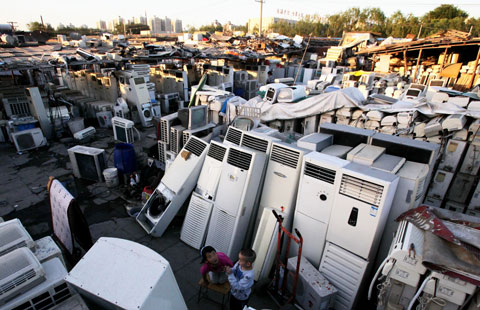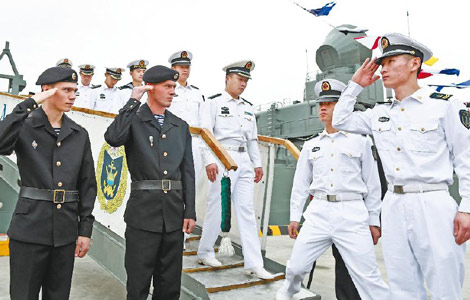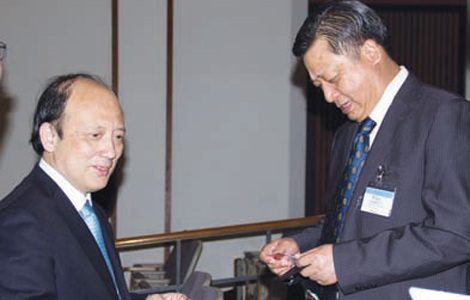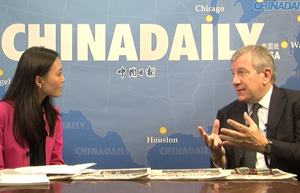Veteran diplomat says US deliberately raising tensions
Updated: 2014-05-21 03:00
By Zhang Yunbi (China Daily)
|
||||||||
The United States is using the Philippines and Vietnam to make trouble for China by increasing tensions in the South China Sea, a former Chinese ambassador said.
"When US President Barack Obama came to office in 2009, he implemented a new strategic focus," said Zhang Jiuhuan, vice-president of the China Public Diplomacy Association and a former ambassador to Thailand, Nepal and Singapore.
"This focus was to rebalance the US presence in the region to consolidate its dominance."
Speaking at a news conference at the All-China Journalists Association in Beijing on Tuesday, Zhang said, "There is no doubt that in the wake of the Vietnam riots, relations (with China) will be affected."
The South China Sea is a huge area of about 3.5 million square km, he said, adding that Chinese ownership of the islands were recorded long before Christopher Columbus first set sail for North America in 1492 and Ferdinand Magellen made his historic global voyages in the 16th century.
Zhang, who used to lead the Department of Asian Affairs at the Foreign Ministry, said the killing, looting and arson after the anti-China protests was "not a coincidence".
"The region is witnessing emerging economies such as China. There will be more ups and downs in the future," he said.
There is widespread speculation that Washington was behind the tension, the veteran diplomat said.
"Washington, indeed, is an impetus behind the ups and downs of the South China Sea issue. It is exercising its smart power," he said, adding that it is "unlikely that the problems will be resolved overnight".
He predicted that China's Nansha Islands may experience more low-profile infringements of sovereignty, so one of Beijing's priorities is "to safeguard the islands and make sure no more land is taken away".
"Peaceful dialogue and negotiations are the only path to resolution," Zhang said.
As for China's legitimate drilling for oil and gas in the South China Sea, Zhang said China should take "a proactive attitude".
"There may already be more than 1,000 oil rigs in the South China Sea", and a form of joint development is an option. Zhang said.
Beijing should focus on two areas — safeguarding China's legitimate rights and interests, and ensuring regional peace and stability.
"China's proposals, in essence, serve the interests of Southeast Asian nations," Zhang said.
- China demands ASEAN neutrality over South China Sea
- China's South China Sea resolve unshakable
- China owns sovereignty over the South China Sea rig: Australian expert
- Territorial disputes in the South China Sea
- China far from being 'aggressive' in South China Sea
- South China Sea issue not problem between China, ASEAN, says FM spokeswoman
- China hosts major Asia security conference
- Xi vows support for Afghanistan reconstruction
- Security summit to help build mutual trust
- Russian president arrives for state visit
- China suspends cyber working group activities with US to protest cyber theft indictment
- China publishes latest data of US cyber attack
Most Viewed
Editor's Picks

|

|

|

|

|

|
Today's Top News
China slams indictments over cyber snooping
China's real estate market: collapse or managed slowdown?
Envoy seeks Chinese backers for key infrastructure projects
New JV forms world's largest auto interiors supplier yet
Andre Agassi will open 39 more charter schools
Improve Sino-US military ties
US envoy seeks Chinese backers for key projects
China summons US ambassador over indictment
US Weekly

|

|














